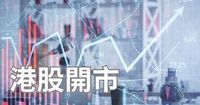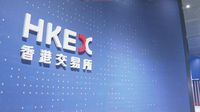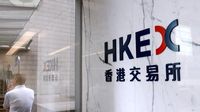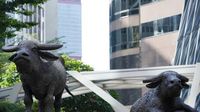On April 7, 2025, the Hong Kong stock market opened with a significant drop, reflecting ongoing global financial turmoil. The Hang Seng Index opened at 20,730 points, down 2,119 points or 9.28%, marking one of the lowest points in over two months. This dramatic decline was part of a broader trend affecting Asian markets, which experienced what many are calling a "Black Monday" due to fears over escalating trade conflicts.
The turmoil in the financial markets can be traced back to the introduction of new tariffs by the United States, which have sparked widespread volatility. As a result, U.S. stock futures and Asian markets saw a sharp decline. In Hong Kong, the Hang Seng Technology Index opened at 4,721 points, down 592 points or 11.15%, while the China Enterprise Index was reported at 7,656 points, down 763 points or 9.07%.
Heavyweight stocks bore the brunt of the decline. Alibaba (09988) opened at HK$108, reflecting a drop of 12.55%. Tencent (00700) opened at HK$441.8, down 11.25%, and Meituan (03690) opened at HK$145.1, a decrease of 8.11%. Other significant players, such as CK Hutchison (00005) and AIA (01299), also saw their stock prices plummet, with CK Hutchison down 14.63% to HK$73.5 and AIA down 7.71% to HK$55.05.
As trading progressed, the situation worsened. By 9:52 AM, the Hang Seng Index had fallen further to 20,537 points, marking a decline of 2,312 points or 10.12%. Among the blue-chip stocks, a staggering 27 recorded double-digit declines. Wuxi Biologics (02269) led the downward trend, plunging 18.5%. Meanwhile, AAC Technologies (02018) saw a drop of 15.8%, and Cowell (01415) experienced a catastrophic fall of over 27%.
Market analysts attribute the steep declines to a combination of factors, including heightened fears of trade wars and the resulting economic instability. The global stock market crash has sent ripples through Asia, with investors reacting swiftly to the news. The uncertainty surrounding U.S.-China trade relations continues to loom large, leading to a cautious atmosphere among traders.
The repercussions of this market downturn extend beyond just stock prices. The financial distress felt by companies listed on the Hong Kong exchange reflects broader economic concerns. Investors are grappling with the implications of increased tariffs and the potential for a protracted trade conflict, which could stifle economic growth.
In the wake of these developments, many market observers are calling for greater clarity and stability in trade policies. The hope is that a resolution to the trade tensions can alleviate some of the pressure on global markets. However, until such a resolution is reached, volatility is likely to remain a fixture of the financial landscape.
As the day progressed, the Hang Seng Technology Index fell nearly 12%, dropping to 4,678 points, while the China Enterprises Index also fell by more than 10%, reporting 7,571 points. The significant losses across the board highlight the pervasive concern among investors regarding the future of both the Hong Kong market and the global economy.
In summary, the opening of the Hong Kong stock market on April 7, 2025, serves as a stark reminder of the fragility of financial markets in the face of geopolitical tensions. With the Hang Seng Index and other major indices experiencing severe declines, investors are left to ponder the implications of ongoing trade disputes and the potential for further economic fallout.








